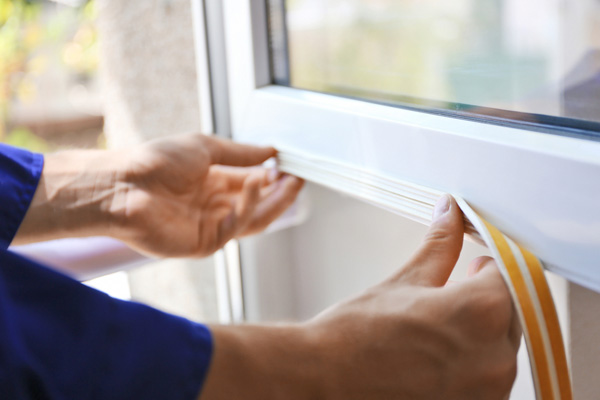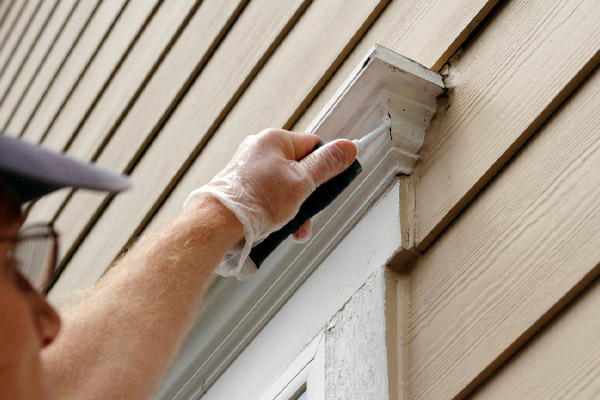
Heating systems strain against the chill of the winter wind to keep your homes warm and comfortable. But air leakage can interfere with the dynamics of heating a home in a bad way, and this can cause your heating equipment to overwork, leading to lower efficiency, increased energy consumption, and unnecessary HVAC repairs.
Air leakage is a very common problem but not one that is immediately evident. Thus, it rarely gets the attention it should. Hot air from inside the home can escape from in between the cracks and gaps of the windows. Unfortunately, this counteracts the dynamic of your home’s thermal pocket, creating hot/cold spots. In the following article, we take a closer look at this issue and explain why you should take action immediately if you feel this is happening in your home.
Do Leaky Windows Affect How My Home Is Heated?
Read on to learn more about the severe impact that leaky windows have on the heating of your home. Remember that these concepts apply to any flaws in the integrity of your home’s thermal pocket, including doors, fireplaces, crawlspaces, electrical outlets, and anywhere else.
Why Leaky Windows Are An Problem
In accordance with the second law of thermodynamics, heat always travels from regions of high temperatures to regions of low temperatures. This is why the ice melts on the sidewalk, and the sidewalk does not freeze under the ice.
By the same measure, if your windows are open, or slightly open, or even just a crack open, heat will be escaping from your home’s thermal pocket and causing your heating systems to work harder and unnecessarily use more energy. This means that leaky windows can make it harder to control your interior temperatures. Furthermore, there are other complications that can arise from this issue.
The Impact Of Air Leaks On Energy Bills

As the heat escapes your home, there will be a noticeable drop in temperature. This will cause the home’s heating to fire back on as a way to increase the temperature in the home to your desired levels. The heat will escape much faster than it ought to, and the process will repeat itself. This means the heating will be turned on far more often than necessary and result in increased energy consumption. Failing to act quickly can result in a considerable loss of energy and finances.
But the financial implications of a leaky window do not end there. A furnace is a finely tuned implement measured to heat your home’s thermal pocket for an estimated amount of service life. If it is forced to work harder, it will suffer a great reduction in its service life as a result of wear and tear. Before its final and early retirement, it will likely suffer premature breakdowns and require replacements. All these details can add up to result in a considerable financial strain on your budget.
How Do I Test for Air Leakage?

The next logical question concerns detecting such a budget-flattening situation brewing in your home. If you have an air leak in your home, you will certainly want to know about it as soon as you possibly can. Here are some tips on how to perform a fairly thorough inspection of your home’s windows to determine the presence of a leak.
- Visual Inspection: Begin with a visual inspection; you can usually tell what is well-sealed and when these seals are cracked and in poor condition. While you are walking about the house, take a moment to check the seals and frames of all doors, attic hatches, and baseboards. This inspection will alert you to the conditions of these important components of your home’s thermal pocket, so make some notes of everything you find.
- Building Pressurization Test: This is a test that will try to detect the movement of air through the house. But it will only work if everything is still. Shut off the heating and vents and walk around the house with an incense stick. If the smoke can pass from the inside to the outside, you can be pretty sure there is a leak. Run the stick of incense around the edges of the windows to detect any currents of air escaping the home.
- Blower Door Test: This is a slightly more advanced method of finding the leak in the windows and is typically only carried out by professionals — it also delivers more precise results. HVAC technicians will hook up a blower to one of the vents in the home and push air into the home. This will create negative pressure and force air out of the home through the gaps and cracks. This will allow them to identify the leaks in your home. They will also be able to measure the amount of air that is escaping your home.
Tips For Sealing Air Leaks
There are some measures the average homeowner can take to counter this issue. Slim gaps can be filled with caulking, and larger gaps can be addressed with foam sealant. But if the air leakage is extensive, it may require more advanced solutions and specialized insulation work. A professional service will deliver superior results from the use of specific tools and specialized training.
Common Areas That Benefit From Air Sealing

- Doors & Windows – Over time, doors and window seals will deteriorate with exposure to the elements. Sometimes the installation technicians will overlook the caulking in some sections of the window. This can lead to cool drafts in the winter. It is imperative to your energy expenses that this is sealed instantly.
- Switch Plates & Electrical Outlets – It is often apparent that these features of the electrical system are sitting flush with the walls. However, the errors can be hidden but have considerable consequences. This could be due to poor installation work or uneven wall surfaces. Gaskets can help you to seal off this perimeter completely.
- Plumbing & Wiring – There may be points where the piping in the home passes through walls and insulation. If this is not sealed properly, the leaks in your home can cost you a bundle. Make sure these spots are addressed with a non-hazardous material.
- Roof & Attic – Thermal expansion can lead to gaps created in the roof of your home. This can lead to leaks when it rains. But it can also lead to seams and corners becoming disjointed and allowing interior heat to escape.
- HVAC Air Ducts – Ducts are the conduits through which air moves about the home. If these were to develop leaks, there would be substantial temperature differences between the rooms. A professional service will be able to hunt down these leaks and address them decisively.
Call Point Bay Fuel For All Of Your HVAC Requirements

Point Bay Fuel offers superior heating and cooling services in Ocean and Monmouth County, New Jersey.
Our certified technicians can provide you with excellent HVAC services, including heating and cooling tune-ups, repairs, installations, and replacements. Each technician has outstanding knowledge and experience to serve your HVAC system needs correctly the first time around.
Point Bay Fuel guarantees to provide the most competitive heating and cooling service costs in the area. Our maintenance services ensure to improve your comfort, increase your system’s energy efficiency, and reduce your home’s heating and cooling costs.
Need your system repaired or replaced? We’ll recommend the best solution that works well within your budget. The best part is that all our work is backed with a guarantee to ensure your satisfaction. To schedule a service appointment, give us a call today!
Contact us now by calling (732) 349-5059 to speak to one of our home comfort specialists!
The post Do Leaky Windows Affect How My Home Is Heated? appeared first on Point Bay Fuel.
No comments:
Post a Comment